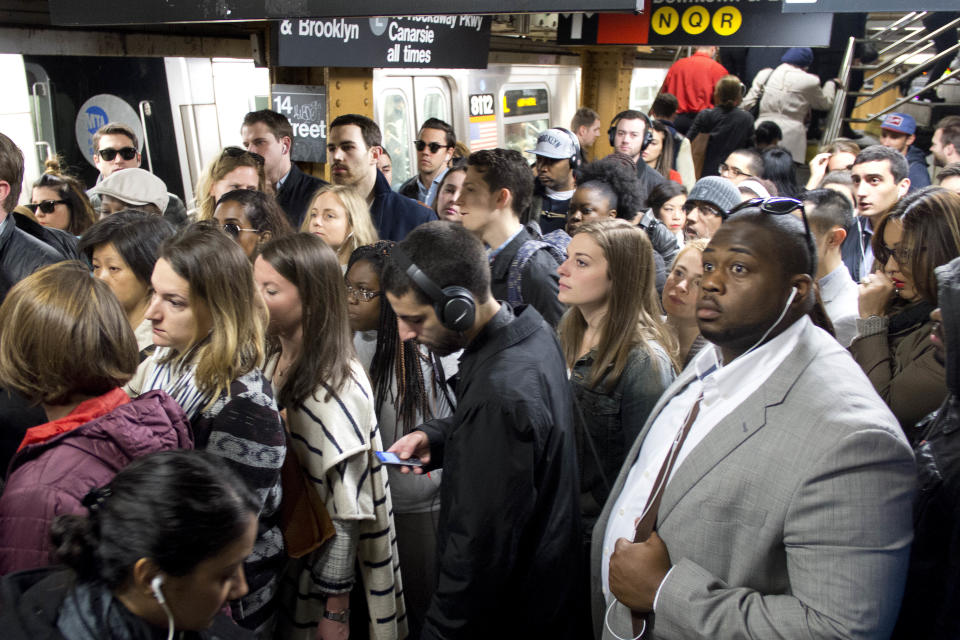Why life is better in places economists hate
I travel a fair amount and I started noticing something a few years ago that has become even more evident lately. All the places economists say are terrible seem pretty great to me, and all the places the economists say are wonderful, well, let’s just say they have issues.
Economists look down their noses at France, disdain Spain (and Portugal too), and to them Italy is laughable. As for Japan, the dismal scientists hold it up as the quintessential un-economy that hasn’t grown for years. Even locales in the U.S are to be avoided they say. You wouldn’t want to live in New Orleans, right? It’s a basket case.
In fact, there’s some pretty cool living to be done in all those places I say.
As for the paradigms, economists hold up Singapore, China and of course the good old USA, with New York City and Silicon Valley being singled out as particularly desirable.
To which I say, maybe not.
Now before you start calling me unAmerican and telling me to ‘love it or leave it,’ I can assure I have great fondness for my country. It’s probably the case that I would never permanently leave the US, i.e., renounce my citizenship, though that I wouldn’t have inserted the word ‘probably’ in the previous sentence had I been writing this a decade ago. Also, I wonder if it wasn’t for the fact that I was born in the US, would I choose to live here. (I call it the Martian test. If you touched down fresh from Mars and could live anywhere, where would you pick?)
The point is even with all of the great things about America, who can ignore facts like the alarming decline in our life expectancy—three years running now, our plummeting standing in the World Happiness Report (for the third year in a row, the U.S. has dropped in the ranking and now sits at No. 19, one spot lower than last year), never mind our toxic, dysfunctional politics and broken healthcare system.
‘GDP’ has its limitations
Economists tend to ignore those points though, and focus instead on traditional, hard data measures when rating countries. Metrics like GDP, GDP growth, per capita GDP as well as government spending and debt are their stock and trade. GDP in particular is the accepted benchmark used by Western economists, which I would argue provides a very limited view. But because of the weight GDP carries, we tend to think of the U.S., which of course has the biggest GDP in the world, and China at number two, as the two best economies in the world.
Certainly GDP has its limitations: “[The ] worst example of GDP is that it increases when someone breaks a window and it has to be replaced. [That] creates work that adds to value added for year, but it doesn’t contribute to economic well being broadly,” says Jaana Remes, an economist and partner at the McKinsey Global Institute and co-author of an article entitled, “Is GDP the best measure of growth?”
Relying on GDP alone may be changing though.

“It’s fair to say we’ve become aware there’s much more to life than simply the flows of goods and services, though that’s also important,” says Scott Stern, a professor of management at the MIT Sloane School of Management and a member of the advisory board for the Social Progress Imperative, which publishes the Social Progress Index. “There’s been a growing movement to try to capture those other aspects of wellbeing in as rigorous and as systematic a way as possible.”
So let’s go back and take a slightly deeper look at some of the countries I mentioned previously.
To be sure, there is rioting in France (oh that!) and great difficulties integrating immigrants into society, but the quality of life (a work week set at 35 hours and a mandated 25 paid vacation days each year) and the healthcare system, never mind the food and the train system. I know what you are going to say, “no one does any work there.” Ok sure the French aren’t as productive as Americans, but that doesn’t mean it isn’t a great place to live and raise a family.
In Spain you have many of the same dynamics. Of course unemployment was as high as 26% in the last six years, but it is now down to 14%. And oops, don’t look now, but GDP growth over the past two years has been 3% and 2.6%. Sound familiar?

As for Japan, I just traveled there for the first time and because of how economists had predisposed me, I was expecting a country almost in collapse. Yes GDP growth has been anemic for the past 30 years, and yes the population of 127 million makes for crowded conditions, but my take was the world’s third largest economy and exporting juggernaut (autos!) was hardly moribund. And though people work long hours in Japan, the quality of life there is appealing. The bullet train and subways are still amazingly clean and orderly. The food’s remarkable and the culture is rich. That counts for a lot in my book.
Meanwhile life in NYC and Silicon Valley is stressful as hell, replete with soaring costs, 18-hour work days and endless traffic, which is literally killing. According to a new HBO documentary “One Nation Under Stress,” hosted by CNN’s Dr. Sanjay Gupta, who told the Guardian: “The only population of people in the developed world whose life expectancy continues to go down, mortality rates go up, is the white working class in the United States...and the unifying factor was this toxic level of stress.”
Infrastructure in the U.S.—both existing and growth of new projects—is a sad joke, highlighted by the New York City subway, the worst major system in the world. Income and wealth inequality, with the tech, shareholder class one the one hand, and the people that Warren Buffett recently called ‘road kill,’ is widening, producing immeasurable pressure on society.
“[The US has] become one of the most unequal societies in the world in terms of access to health, education, even disposable incomes, a situation where people are less trusting of people than they were in the past,” says John Helliwell, professor emeritus of economics at the University of British Columbia and co-editor of the 2019 UN Happiness Report.

No kidding.
As for China, it also has a killer work culture, never mind massive congestion and horrible pollution. And I’m finding the country is becoming more authoritarian each time I visit. Getting onto Tiananmen Square has become a security ordeal. Blocked Western websites are now officially codified and conveniently listed on a card in my hotel room (Facebook, the New York Times, Google, etc.) Even my company’s VPN was blocked for the first time on my recent trip. In China, family life is being disrupted, and culture has more and more the feel of state sponsored propaganda.
Live there? No thank you.
So why the focus on GDP. Are we going to rely on that one limited measure forever?
“The reason why we have stuck with GDP is because we tend to look at the global economy. One piece of data that has been used across the globe in a broadly consistent manner,” says Jaana Remes. “It has been the common currency for a long time. So much more broadly used than anything else today. [It’s] going to take time for anything else to take its place.”
So go ahead, ask yourself the Martian question: If you dropped down on planet Earth from outer space. Would rather live in the South of France or Silicon Valley or Beijing? Maybe the answer has always been the former, but to me it’s becoming more of a clear choice.
—
Andy Serwer is editor-in-chief of Yahoo Finance.
Read more:
Alexandria Ocasio-Cortez has a point about the 'trifecta of inequality': El-Erian
Why Facebook, Google, and Twitter don't want to be media companies
How Donald Trump strengthened The New York Times and grew a Mexican billionaire's fortune